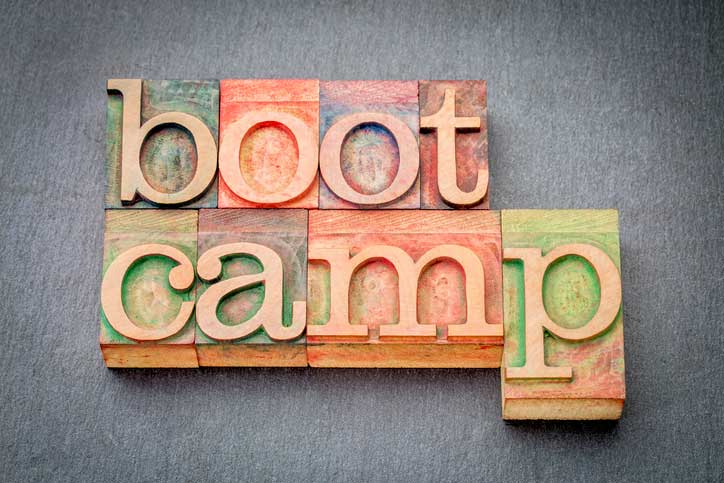Although the executive director has long been seen as the key figure in a nonprofit organization, another significant position determines its financial success. Major gifts managers play a key role in ensuring that the fundraising department has a solid strategy and skilled employees who meet donation targets.
While some smaller nonprofits try to scrape by with the executive director leading the fundraising charge, this can lead to burnout all around. To increase financial well-being and run the most efficient fundraising campaigns, major gifts managers serve a vital role in the nonprofit industry.
An organization looking to increase major gifts donations may be interested in offloading this responsibility to an experienced manager but are unsure where to start. While this position was traditionally only filled at larger organizations, it has become a worthwhile investment for smaller nonprofits.
Why Have a Major Gifts Manager?
Sometimes, especially with a new or inexperienced executive director, major gifts officers get put on the backburner. If the executive director does not recognize the importance and value of the role, they sometimes get overlooked for seemingly more important issues.
Major gifts officers work on their own time, interacting with their own clients, and seem out of the loop on programming and other day-to-day operations of the nonprofit. This leads them to pick up slack in administrative duties, and they are sometimes overburdened with their workload. The financial consequences of this are very real for the organization — a burnt-out employee leads to a decrease in job performance and less successful solicitation attempts.
Major gifts officer positions have a high turnover rate. The average retention rate for this role is 18-20 months. This is unfortunate, as there is a correlation between the length of time a major gifts officer has been employed and the return on donations. In this career path, remaining in a position increases the success rate of asks.
New executive directors often underestimate the impact of stewardship on increasing donations. Retaining staff to continue strengthening bonds with donors is a remarkably easy way to meet your fundraising goals.
Major gifts managers are an asset to a nonprofit once it begins to grow. Reducing the workload of major gifts officers allows them to spend more time strategizing and meeting with clients. Meeting goal targets of face-to-face meetings with donors increases your chances of being able to make an ask. A better work environment and increased support can only benefit the overall financial wellbeing of the nonprofit.
The Role of Major Gifts Managers
So what do major gifts managers do, exactly? Depending on the nonprofit, the role may look a little different, but they all conduct their work with the organization’s future vision in mind.
In general, major gifts managers are employed to provide support and advocacy for major gifts officers within the organization. They make sure that any issues are brought to the executive director. The major gifts manager may also be the person to liaise with the board of directors to ensure that the fundraising strategy is aligned with the organization’s financial goals.
Major gifts managers are often experienced in the industry and can provide guidance to new officers. They may provide coaching or help analyze donor data to make a significant solicitation. If they note that an employee is struggling or failing to meet their targets, they may encourage additional training in the area that needs support.
In some workplaces with smaller budgets, they may have their own caseload and work alongside the other officers. However, their main work should be ensuring that the fundraising department has structures and processes in place to run efficiently.
In larger workplaces, major gifts managers may be in charge of two distinctly different fundraising streams. Sometimes there is a competitive environment between these streams, and they are highly protective over their client information.
Usually, these streams are annual donations and major gifts. Annual donations are smaller contributions that help support the daily operations of the nonprofit. Major gifts help secure the financial future of the nonprofit in lump sum and planned giving arrangements.
Hiring a manager can help mitigate issues between the two streams and help develop a strategy that satisfies people on both sides of the fundraising fence for the organization’s benefit.
Best Practices When Hiring Major Gifts Managers
The decision to hire major gifts managers cannot be made lightly. Hiring the wrong person for this position could be a costly mistake and cause tension in the workplace.
The most important thing to consider is the applicant’s experience as a major gifts officer. It is crucial that the person in this position understands the industry, has successfully asked for large monetary donations, and understands the burden of the workload. They must be passionate about helping newer major gifts officers become skilled at cultivating relationships and soliciting annual gifts, major gifts, and planned donations.
Experienced major gifts managers have an eye for the right time to ask for a donation. They may look at donor data and identify prospective donors that have not been approached recently, but they feel that the time is right to ask again. Or they may feel that the time has come to stop expending resources on a particular person and advise the team to move on.
Another aspect that must be considered is keeping the right people in the right positions. For example, suppose you have a major gifts officer with spectacular performance who is bringing in significant donations for the organization. In that case, it may be best to keep them in that position. Choosing someone who understands the job and can act as the liaison between major gifts officers and the executive director is a better choice than moving your superstar major gifts officer.
Ensuring you hire someone with a positive outlook, a proven track record, loyalty to the cause, and a shared vision with the board of directors can help ease the transition with this management position. Taking a thorough look into references can help you gauge the hiring process.
Conclusion
If you are looking to increase the efficiency of your fundraising department, connecting with major gifts managers may be the next step for your organization. Avoiding burnout and improving retention rates can only benefit your fundraising efforts, improving the organization’s financial outlook.
An executive director does not always have the experience needed to manage a fundraising department. With the differences between annual gifts and major gifts, a skilled manager to oversee the entire project and ensure that fundraising goals are met could be the difference in your nonprofit sinking or floating.
Removing some of the workload of the executive director also frees them up to deal with operational concerns, improve programming, form a marketing strategy, and spend time working with the board of directors. This can help maintain and improve the overall atmosphere and employee relations in all departments.
Overall, the hiring of major gifts managers should be considered a strategic move. You should be pleasantly surprised with your return on investment when you see the annual donation figures, and the entire team should feel the relief that this position provides.











